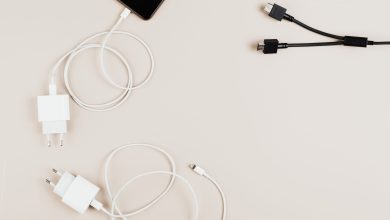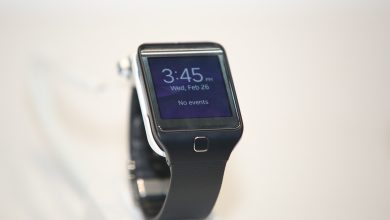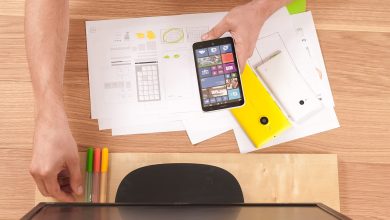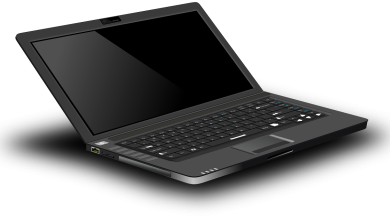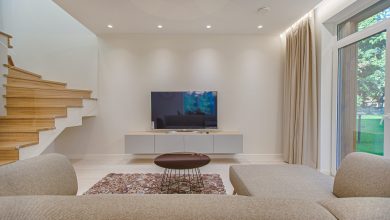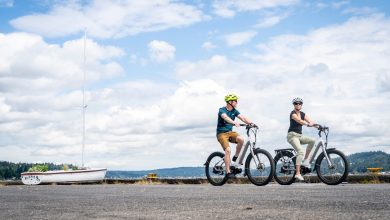Which phone has the best camera: Samsung Galaxy S22, Google Pixel 7 pro, or iPhone 13
Overview
In today’s fast-paced world, where smartphone photography has become an integral part of our lives, having a top-notch camera can make all the difference. With each new flagship release, companies like Apple, Samsung, and Google compete fiercely to outdo one another in the camera department. In this article, we will delve into the camera capabilities of three popular smartphones: the iPhone 13, Samsung Galaxy S22 Ultra, and Google Pixel 7 Pro. We’ll compare their camera specifications, hardware features, software and AI capabilities, low-light performance, video recording, front camera, user experience, and pricing to determine which device emerges as the true camera champion.
Camera Specifications
Let’s begin by looking at the camera specifications of each contender:
iPhone 13
The iPhone 13 boasts a powerful dual-camera system, featuring a 12 MP wide and ultra-wide lens. It comes equipped with optical image stabilization, Smart HDR 4, and Night mode, allowing users to capture stunning images even in challenging lighting conditions.
Samsung Galaxy S22 Ultra
The Samsung Galaxy S22 Ultra takes it up a notch with its quad-camera setup. This impressive array includes a 108 MP wide lens, two 10 MP telephoto lenses, and a 12 MP ultra-wide lens. With 100x Space Zoom and Bright Night sensor technology, this phone is designed for extraordinary zoom and low-light photography.
Google Pixel 7 Pro
Google Pixel 7 Pro is renowned for its computational photography prowess. Despite having a dual-camera setup (50 MP wide and 12 MP ultra-wide), its advanced AI algorithms and computational photography techniques enable it to capture exceptional images with remarkable detail and dynamic range.
Hardware Features
Apart from the camera specs, the hardware features play a crucial role in enhancing the overall photography experience. Let’s see how each phone’s hardware contributes to their camera performance:
iPhone 13
Apple’s A15 Bionic chip provides exceptional processing power, enabling faster autofocus, improved noise reduction, and better image signal processing. Additionally, the sensor-shift optical image stabilization further enhances photo and video stabilization.
Samsung Galaxy S22 Ultra
The Samsung Exynos 2200 (or Snapdragon 895) chip, coupled with the phone’s large sensor size, contributes to better color accuracy, reduced noise, and improved overall image quality. The phone’s autofocus capabilities are also incredibly fast, ensuring you never miss a moment.
Google Pixel 7 Pro
Google’s prowess in software optimization shines with the Pixel 7 Pro. Its custom Tensor chip allows for advanced AI processing, enabling features like Astrophotography mode and enhanced Night Sight for unparalleled low-light photography.
Software and AI Capabilities
The software and AI capabilities are what set these smartphones apart, elevating their camera performance to a whole new level:
iPhone 13
Apple’s Deep Fusion and computational photography algorithms work harmoniously to produce detailed images with true-to-life colors. The Photographic Styles feature also allows users to customize their shooting styles to match their preferences.
Samsung Galaxy S22 Ultra
Samsung’s camera software is packed with features like Single Take, which captures multiple shots and videos with a single press. Additionally, the AI-based portrait mode and background effects enhance creativity in photography.
Google Pixel 7 Pro
Google’s software brilliance is evident in its camera app, offering seamless integration of features like Magic Eraser for removing unwanted objects and Motion Mode for capturing dynamic shots.
Low Light Performance
The ability to capture stunning photos in low-light conditions is a crucial factor for any camera-centric smartphone. Let’s see how these contenders perform in challenging lighting scenarios:
iPhone 13
With Night mode, the iPhone 13 delivers impressive results in low-light situations, maintaining sharpness and minimizing noise. Its larger sensor size also aids in capturing more light, ensuring better low-light photography.
Samsung Galaxy S22 Ultra
The Galaxy S22 Ultra’s Bright Night sensor technology and large pixel size allow it to excel in low-light conditions, producing well-lit and detailed shots even in almost complete darkness.
Google Pixel 7 Pro
Google Pixel 7 Pro’s Night Sight is lauded for its ability to brighten up even the darkest scenes while preserving details and colors. Its software-driven approach to low-light photography remains unrivaled.
Video Recording
Smartphone cameras have also become powerhouses for video recording. Let’s explore the video capabilities of each contender:
iPhone 13
The iPhone 13 supports Dolby Vision HDR recording, allowing for cinema-grade video capture with stunning dynamic range. Its advanced stabilization ensures smooth and steady footage, even during fast-paced action.
Samsung Galaxy S22 Ultra
The Galaxy S22 Ultra’s 8K video recording and Director’s View feature cater to content creators, offering versatility and creative control during video shooting.
Google Pixel 7 Pro
Google Pixel 7 Pro’s advanced video stabilization and 4K HDR recording capabilities ensure that your videos are of top-notch quality, whether you’re shooting in daylight or dimly lit environments.
Front Camera
The front-facing camera has become equally important, especially with the rise of social media and video conferencing. Let’s see how these phones fare with their selfie cameras:
iPhone 13
The iPhone 13’s 12 MP front camera, coupled with the TrueDepth sensor, enables Portrait mode and Face ID, making selfies more engaging and secure.
Samsung Galaxy S22 Ultra
The Galaxy S22 Ultra’s 40 MP front camera captures sharp and vibrant selfies, and its Live Focus mode adds a professional touch to your self-portraits.
Google Pixel 7 Pro
The 12 MP front camera on the Pixel 7 Pro, along with its wide dynamic range, ensures that your selfies are well-lit and full of detail, even in challenging lighting conditions.
User Experience
Beyond the numbers and specs, the overall user experience is vital when choosing a smartphone camera. Let’s explore how the user experience of each phone affects the photography journey:
iPhone 13
Apple’s user-friendly interface and intuitive camera app make photography a breeze for both beginners and experienced photographers. The seamless integration of hardware and software ensures that you can capture stunning shots effortlessly.
Samsung Galaxy S22 Ultra
The Galaxy S22 Ultra’s One UI offers a host of customizable features, allowing users to tailor their camera settings to match their shooting preferences. The well-designed camera app provides easy access to various shooting modes and creative tools.
Google Pixel 7 Pro
Google’s Pixel phones are known for their simplicity and straightforward user experience. The camera app’s minimalist design and AI-driven features make photography enjoyable, and the integration with Google Photos ensures seamless storage and organization of your shots.
Pricing and Conclusion
Price is a significant factor for many consumers when choosing a smartphone. Let’s consider the pricing of each phone and draw our conclusion:
The iPhone 13, being the latest offering from Apple, comes with a premium price tag. The Samsung Galaxy S22 Ultra, with its cutting-edge technology and high-end features, also falls into the premium category. On the other hand, the Google Pixel 7 Pro, while offering excellent camera capabilities, tends to be more budget-friendly compared to the other two.
Conclusion
All three smartphones—iPhone 13, Samsung Galaxy S22 Ultra, and Google Pixel 7 Pro—have impressive camera capabilities, making them worthy contenders in the smartphone photography arena. The iPhone 13 excels in its seamless integration of hardware and software, delivering outstanding results across various photography scenarios. The Samsung Galaxy S22 Ultra impresses with its versatile quad-camera setup and advanced low-light performance. Meanwhile, the Google Pixel 7 Pro stands out for its exceptional computational photography, offering stunning shots with its software-driven approach.
Ultimately, the choice of the best camera phone depends on your specific needs and preferences. If you’re looking for a device that offers a seamless user experience and top-notch hardware-software integration, the iPhone 13 is a compelling choice. For photography enthusiasts who crave versatility and cutting-edge technology, the Samsung Galaxy S22 Ultra is a worthy investment. And if you prioritize computational photography and seek a more budget-friendly option, the Google Pixel 7 Pro won’t disappoint.
Whichever phone you choose, rest assured that smartphone photography has come a long way, and each of these devices represents the pinnacle of camera technology in their respective ecosystems.
FAQs (Frequently Asked Questions)
1. Are these smartphones water-resistant?
Yes, all three smartphones—the iPhone 13, Samsung Galaxy S22 Ultra, and Google Pixel 7 Pro—are water and dust-resistant, with varying degrees of protection (IP68 for iPhone 13 and Galaxy S22 Ultra, and IP68+ for Pixel 7 Pro).
2. Do these phones support 5G connectivity?
Yes, all three phones are equipped with 5G capabilities, allowing for faster data speeds and improved network performance.
3. Which phone has the best battery life?
The battery life varies depending on usage, but generally, the Samsung Galaxy S22 Ultra tends to have a larger battery capacity and longer endurance.
4. Can I use external lenses with these smartphones?
Yes, there are various external lenses available in the market that can be attached to these smartphones to enhance photography versatility.
5. Do these phones support RAW photo format?
Yes, all three smartphones offer support for capturing images in RAW format, allowing for greater flexibility during post-processing.
6. Which phone has the best low-light video recording?
The Samsung Galaxy S22 Ultra’s Bright Night sensor technology gives it an edge in low-light video recording, producing clearer and brighter footages
7. Are there any unique camera features that stand out in these smartphones?
Yes, each phone has its unique camera features. For instance, the iPhone 13’s Photographic Styles and the Galaxy S22 Ultra’s Single Take mode offer creative shooting options.
8. Do these phones come with a dedicated macro lens?
The Samsung Galaxy S22 Ultra has a dedicated macro lens among its quad-camera setup, providing close-up photography opportunities.
9. Which phone has the best AI-based photo enhancements?
The Google Pixel 7 Pro’s AI-driven photo enhancements, powered by its custom Tensor chip, have received acclaim for their ability to improve image quality significantly.
10. Can these phones shoot in 8K resolution?
- Yes, both the iPhone 13 and Samsung Galaxy S22 Ultra support 8K video recording, allowing for ultra-high-definition video capture.
Remember, when choosing a phone, consider your photography preferences, budget, and overall needs to make an informed decision that suits you best. Happy shooting!
